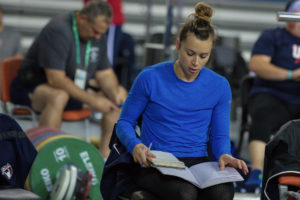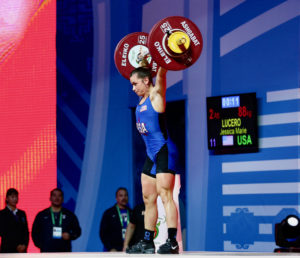
Practical planning for becoming brutally strong
Strength Sensei CP
Most serious Iron Game will pass right by the self-help section of a local bookstore, but that might be a mistake. If you want to get strong, you must have a plan, and this involves setting goals.
The most important idea I want you to take away from this discussion is that you must set specific goals that can be measured and establish deadlines for each one to get strong. I can’t emphasize the importance of being precise enough. For example, you don’t write, “I want to be a beast!” because such a statement is not specific or measurable and can encourage you to procrastinate. Instead, say, “I want to move up to the 90-kilo weight class by October 1stand bench press 165 kilos.”
Before putting pen to paper, you must assess your athletic potential. If you are a male ectomorph (lean bone structure) with low testosterone, don’t put the Mr. Olympia competition at the top of your list. Likewise, a female mesomorph (heavy bone structure) with high testosterone would be better suited for bodybuilding shows than a beauty pageant. Investing in an adrenal stress index, a hormonal profile, and a comprehensive metabolic profile is a good start on your path to serious physiological assessment.
 Not everyone has the physical gifts to compete at the elite levels, so setting realistic goals is important. (Lead photo by Viviana Podhaiski, LiftingLife.com. Competition photo by Tim Scott, LiftingLife.com.)
Not everyone has the physical gifts to compete at the elite levels, so setting realistic goals is important. (Lead photo by Viviana Podhaiski, LiftingLife.com. Competition photo by Tim Scott, LiftingLife.com.)
At this point, you can make a list of what you must do to achieve your goals. Also (and I’m serious about this), make another list of what has to go to reach that goal. No worthy goal is ever reached without sacrifice. Consider this sad example of a talented athlete on our National Bobsleigh team trying to earn a spot in the 1992 Albertville Olympics. The issue was that he drank like a fish, often coming to his workouts with a hangover. He lost his spot to a less talented athlete who never missed a workout and was in better athletic condition at the Trials.
Now you’re ready to get to work! First, make a list of immediate goals with specific deadlines — small goals make big goals!
Next, keep a detailed logbook of your training program. A well-kept training journal will allow you to monitor and evaluate your training program’s efficacy and help set short-term goals. According to weightlifting legend Tommy Kono, there is no single better training aid than a logbook and said, “The palest ink is better than the best of memories.”
Serious Iron Game athletes are goal-setters. They strive to surpass old milestones while reaching to achieve new ones. So, get yourself on “the road best traveled” and spend some time determining your goals and setting your plan to paper!
